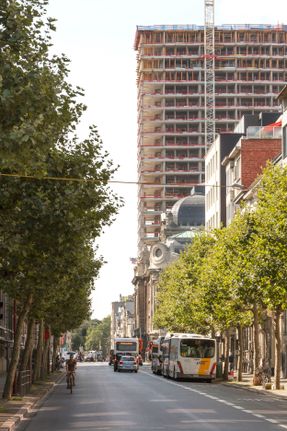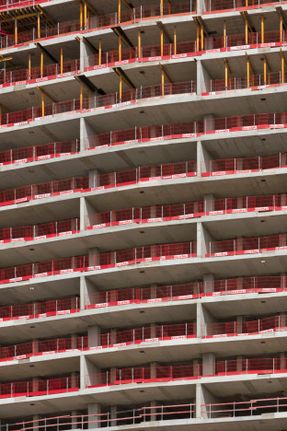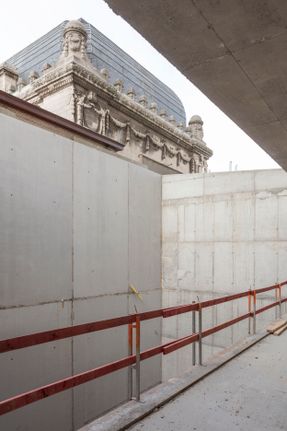
Antwerp Tower
ARCHITECTS
Wiel Arets Architects
TYPOLOGY
Housing, Office, Restaurant, Retail
CLIENT
Matexi Projects N.v.
CONSULTANTS
Arcade Concept Engineering, Ces Building Engineering, D2s International, Fpc Risk
COLLABORATORS
Jelle Homburg, Laura Fiset, Irene Ank, Rogier Franssen, Alicja Pawlak, Bram Van Grinsven, Shino Imai
PROJECT TEAM
Wiel Arets, Joris Van Den Hoogen, Jos Beekhuijzen, Jochem Homminga
STATUS
Under Construction
IN COLLABORATION WITH
Eld Architects
AREA
500,000 sqft - 1,000,000 sqft
DATE OF COMPLETION
2020
START OF CONSTRUCTION
2017
DATE OF DESIGN
2014-2016
YEAR
2020
LOCATION
Antwerp, Belgium
CATEGORY
Residential › Multi Unit Housing
Situated on a corner site, adjacent to the Flemish Opera house, the Antwerp Tower is an existing building that will be repurposed to hybrid-programmed residential tower, reusing the existing building’s structure, and shape.
It is the city's third tallest tower. Currently 87 m tall, and expected to be 100 m when completed, the building will eventually total 59.800 m2.
There are dining, and wellness areas in the first level of the tower–with a sprawling plinth-rooftop terrace abutting the side façade of the adjacent opera.
The building, which originally housed offices and retail, was constructed in the early 1970’s, and is defined by its diamond-shaped floorpan.
Its redesign will see the diamond-shaped footprint of the tower atop the plinth extended beyond its current dimensions, maximizing living space for future residents.
In order to create living units largely free of columns, the original structure is to be partly replaced by an alternating structural system of load bearing walls and columns.
Each floor contains 6 to 14 units, each with its own loggia.
A façade system of polished concrete components–with a slightly golden hue–will compose the building’s new facade; they are enormous in scale, up to 9 m wide, and will minimize visual patterning on the facade, when seen from afar or at street-level.
The same material extends to the building’s entrance lobby and the internal walls and ceilings of each loggia.
Together with seamless windows in the units’ living spaces, and glass balustrades that front each loggia, the components’ scale balances with adjacent opera house’s abundant ornament.
At ground level, retail is situated on the tower’s southern façade, along a pedestrian-only shopping street, while the main entrance for residents and visitors to the restaurant, offices, and wellness areas, is along the western façade, next to the opera’s main entrance.
The lobby, within the plinth, is lit by natural daylight, by way of a void that extends through and up to the roof terrace above.
Centrally located a mere 300 m from the city’s central train station, the redesigned Antwerp Tower will impart a 24-hour energy within this highly trafficked section of the city, while simultaneously creating a live-work-play destination–for residents and visitors alike.

































